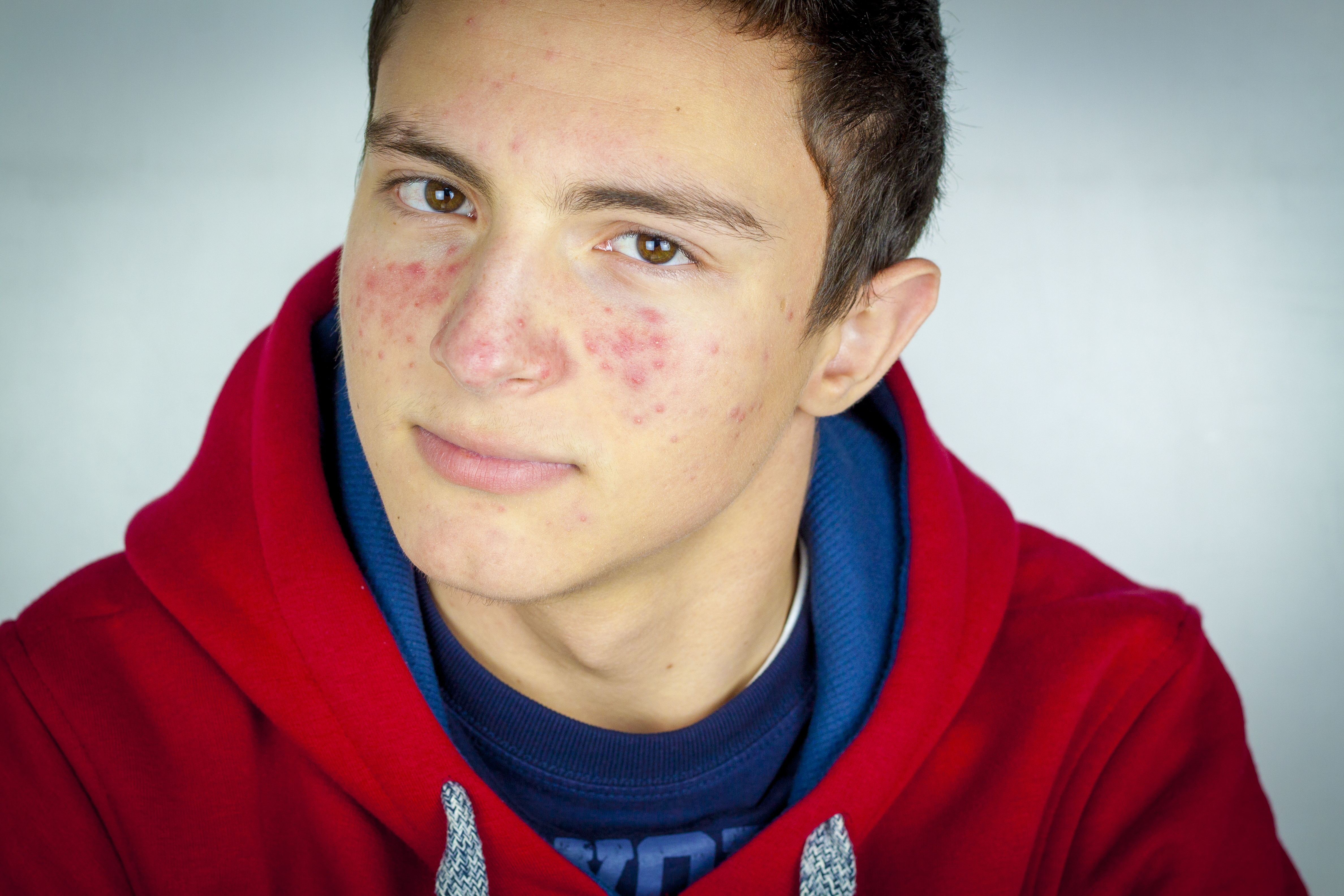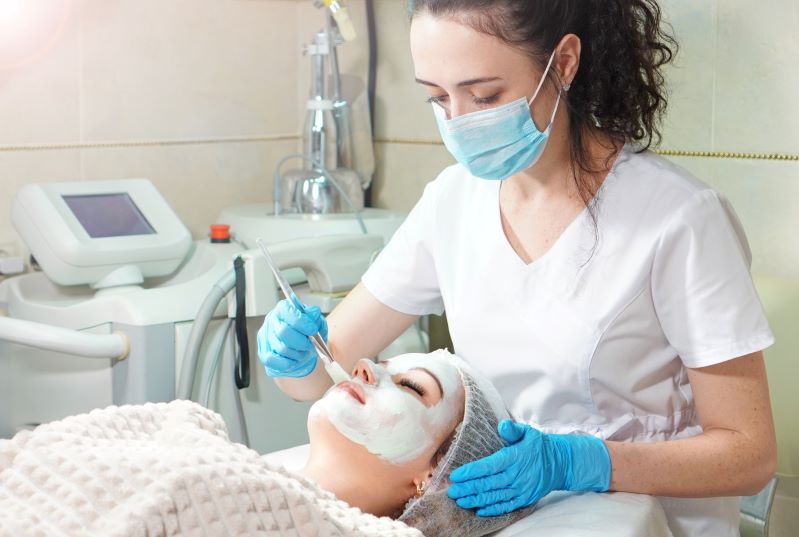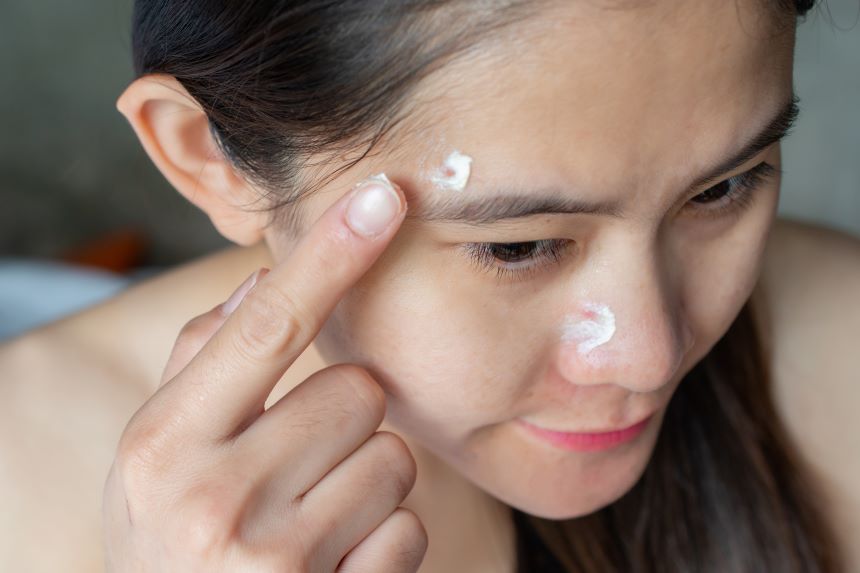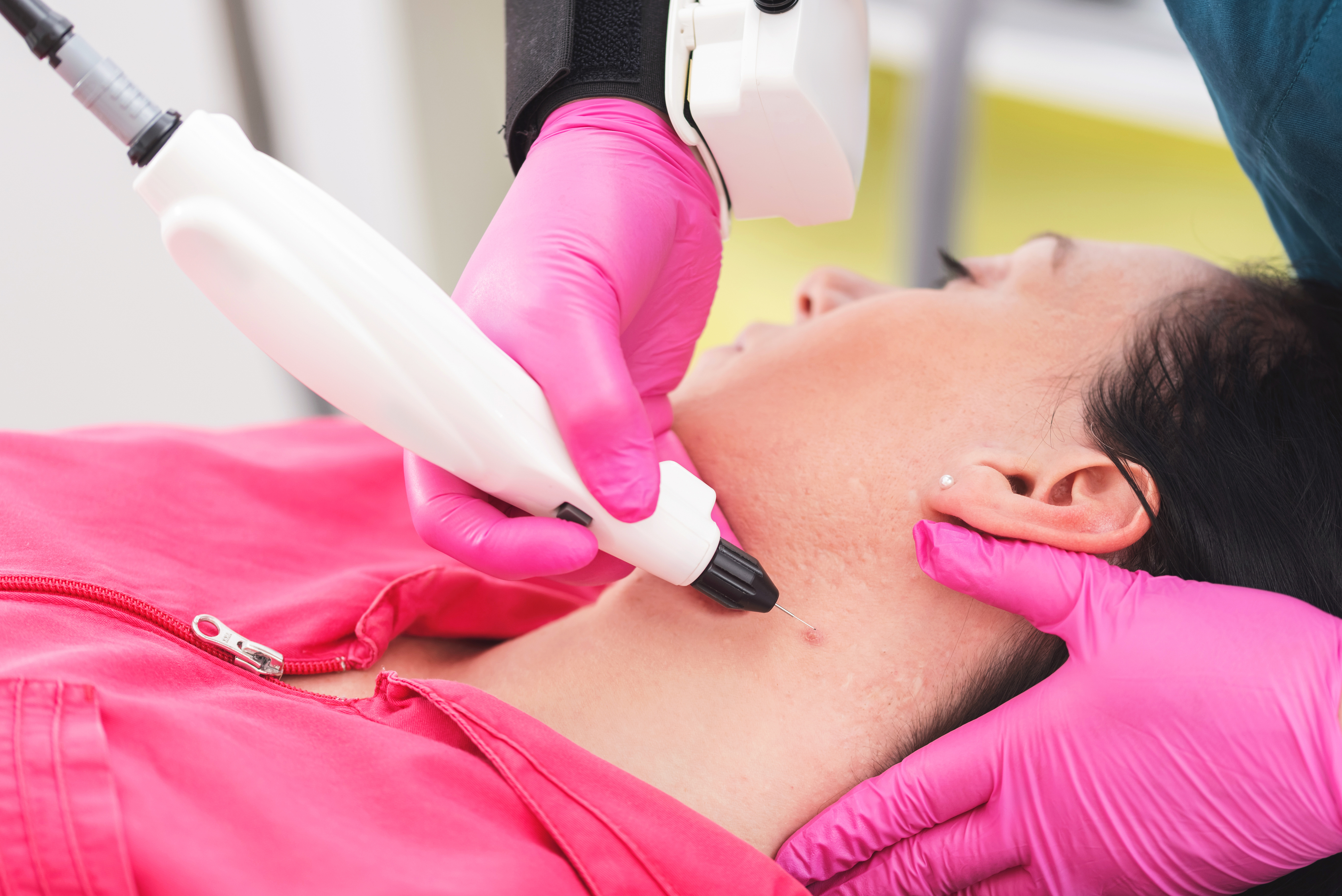For everyone, not just teenagers, acne is caused by heredity and hormones. With a family history of acne while going…

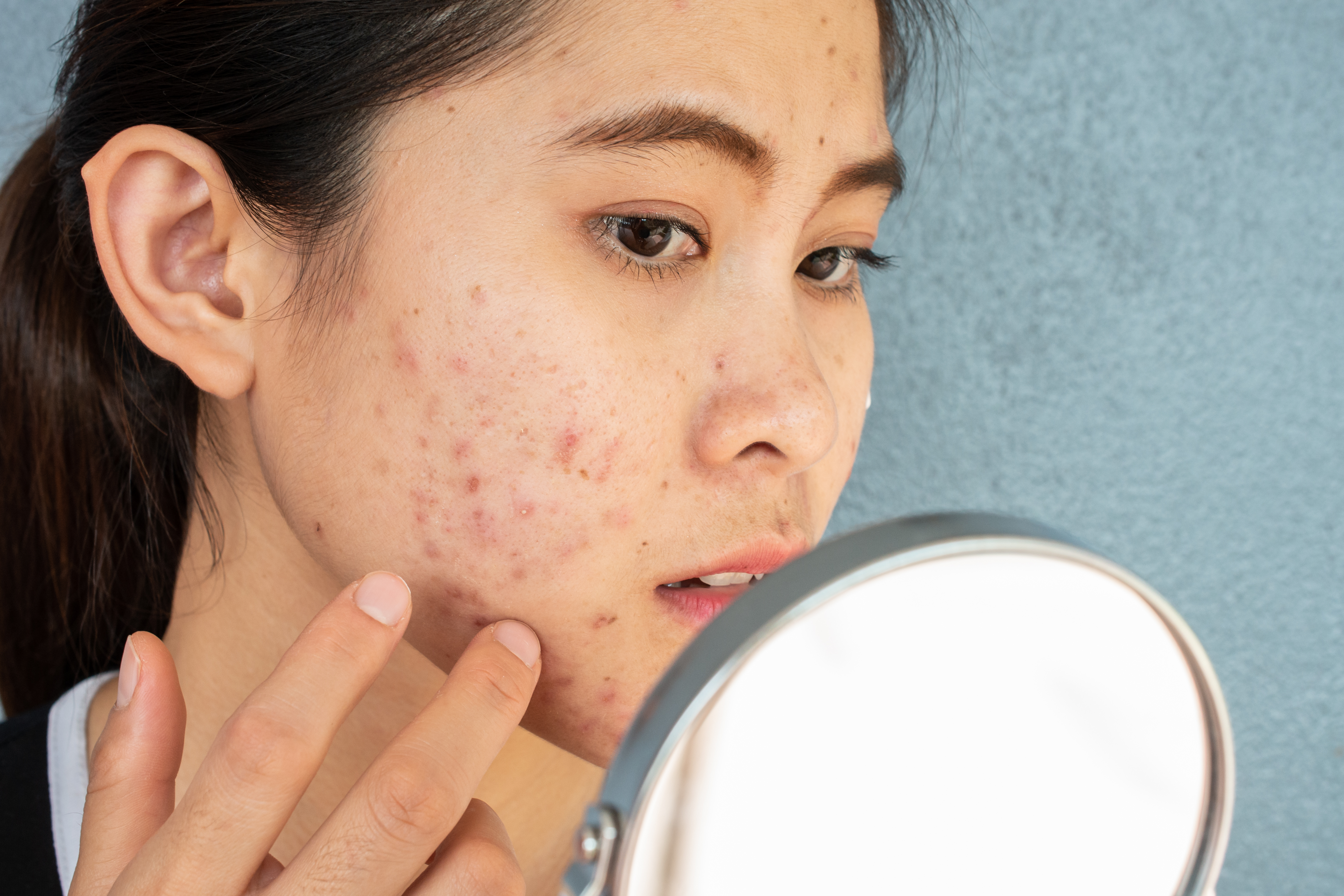 Acne
Acne
At What Age Does Acne Go Away?
Acne can be tiring and frustrating, and many young people ask, when does acne go away?
A zit is the outcome of your pores being filled with oil, dead skin cells, and bacteria. These pimples or zits appear on your face as red or discolored bumps. You may be developing acne if zits or pimples start to consistently appear on your skin.
Acne can be painful, especially when it is severe, and can also cause emotional distress. When we look our best, we feel our best. Even eye contact can be extremely challenging for those who struggle with acne. Over time, medium-severe acne can also cause scarring.
But, no need to worry, acne is the most common skin condition in the U.S! Due to this, there are tested and effective ways to treat acne and prevent scarring that have been used for quite some time now and have continued to provide amazing acne treatment! From buying acne cream online to visiting an acne pharmacy, finding the right treatment can make the world of difference for your acne and you.
Whether you have teen acne or adult acne, it’s common and can be treated. But you might be wondering “when does acne stop?” or “at what age does acne go away?” The answer to that is not as simple as we’d hope but here’s an overview of when and how it can go away.
Does Acne Go Away With Age?
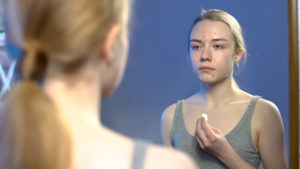
If you’re a teenager, you might be asking, “why do teenagers get acne?” But If you’ve struggled with acne, have had it for a long time, or are just curious, you may be asking when does acne go away?
The answer to this question varies between each individual. Overall, if underlying factors of acne are not addressed, it may never disappear. Studies show that 26% of 40 year olds and 12% of 50 year olds have acne. 10% of females that developed acne in adolescence have oily skin their whole life.
According to healthline.com, “ 26% of women aged 31-40 suffer from acne, while 12% of 41-50 year old women have clinical acne.”
Commonly, females that had acne in adolescence then develop adult acne as well. Needless to say, on its own, acne can stay or leave as it chooses, unless treated.
What Causes Adult Acne?
Adult acne develops after turning 25. It can be caused by many things from diet to lifestyle. Causes of acne for adults are pretty adjacent to those of adolescent acne.
Four elements that directly result in acne are:
- Excess oil and sebum production
- Pores clogging (from dirt, sweat, dead skin cells, etc.)
- Bacteria
- Inflammation
Causes of acne that are indirect:
- Hormones, stress, and menstrual cycles can all affect the skin’s oil production and indirectly cause acne.
- Hair, skin care products, and makeup can clog pores.
- Diet can affect inflammation of the face, which then irritates pores.
Medications such as corticosteroids, anabolic steroids, and lithium can cause acne as well. Many skin conditions, acne included, can be a sign of a systemic condition. Hair loss or excessive hair growth, rapid weight gain or loss, irregular period cycles accompanied with random acne breakouts or flare ups can be a sign of an underlying disease. Tell your doctor right away if you are experiencing these symptoms!
Treatment options for adult acne:
- How to treat your acne depends on your skin type and how severe/what kind of acne it is. Topical Tretinoin works by cleaning skin cells quickly to prevent clogged pores. Tretinoin has the beneficial side effects of treating fine wrinkles as well as evening and brightening your skin tone. Used to treat severe acne, Isotretinoin is an oral treatment that is believed to be the most effective.
- Women can use Spironolactone during a menstrual cycle when experiencing hormonal acne flare ups. This medication helps keep testosterone levels normal.
- Photodynamic therapy and chemical peels are also helpful to treat acne or adult acne. This therapy is a light therapy that rids acne of the skin or face.
- It’s important to use gentle and simple skin care products to avoid irritating your skin more. Make sure to purchase products that are gentle and catered to acne prone skin. Eliminate harsh and stronger products that could make acne worse.
- A very bad habit is super common among those with acne. Picking at and popping pimples may be satisfying, but is very damaging to your skin! Picking at your acne can leave scars and discoloration.
Since all acne patients have individual conditions and skin types, it is best to see your dermatologist along with doing your own research to help start healing your skin.
Do Teenage Acne Scars Go Away?
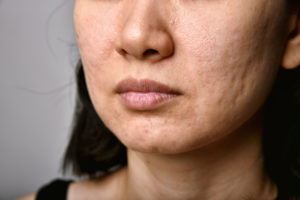
Those reddish or brownish acne marks that appear once the pimples have subsided will go away without needing any treatment. To prevent scarring, it is vital to lessen your picking and squeezing. Ideally, attempt to not touch your face at all!
The majority of acne scars do not go away on their own. Deep acne scars can become more prominent with age, as the skin loses collagen, a unique protein within our bodies that keeps skin hydrated, young, and elastic. The good news is, there are numerous treatments that enable acne scars to be less noticeable.
Types of Acne Scars:
Atrophic scars are the most common scarring as a result of face acne. A deepened scar that is below the skin.
Atrophic Scarring
An Atrophic scar is an indented scar that heals below the top layer of skin tissue. These scars form when the skin is unable to create more tissue to heal the scar fully.
The three types of acne scars:
- Boxcar- A wide U-shaped scar with distinct edges. These scars can be shallow or deep, the more shallow it is, the better the scar will respond to skin resurfacing treatments.
- Ice Pick- These scars are narrow and V-shaped, and often develop deep in the skin. Ice Picks are the most difficult scars to treat because of the far range they can extend to under the skin.
- Rolling- Rolling scars are vast depressions that typically have rounded edges and an irregular/ rolling appearance.
Chest and Back Acne Scarring
Hypertrophic or raised scars. These scars occur often after experiencing chest or back acne. They stand on the surface of the skin and are caused by too much collagen that is produced in an attempt to heal the scar.
Dark Spots
Discoloration of the skin that is present after a zit has vanished is NOT a scar. Within a few months, these spots will fade on their own.
What treatments are out there for acne scars?
To help heal acne scars, there are numerous at home and in-office treatments. Before deciding what treatment route you think is best for you, make sure to consult with a dermatologist before starting treatment. Dermatologists are experts on determining the best personalized method to reduce scars and acne. They can also ensure the marks on your skin ARE acne and not another condition.
Hormonal changes, puberty, clogged pores, and more can have severe impacts on acne breakouts. The important thing to understand is that it’s normal. It’s also very important to understand the underlying cause of acne and how you can help treat it.
Another vital step in treating acne is building an adult or teenage skin care routine. Whether you struggle with teenage acne or adult acne, understanding your skin type, whether you have sensitive skin, dry skin, oily skin, etc., will help you choose the right skin care products for you.
If you or someone you know is experiencing adult acne, see a dermatologist ASAP!
Sources
- Burke, Darla. “Acne: Causes, Risk Factors, and Treatment.” Healthline, Healthline Media, 1 July 2020, https://www.healthline.com/health/skin/acne.
- Ferreira, Mandy. “Acne Scars: Treatment, Removal, Best, and More.” Healthline, Healthline Media, 8 Mar. 2019, https://www.healthline.com/health/acne-scars#depressed-scars.
- Kristina Liu, MD, and MD Janelle Nassim. “Adult Acne: Understanding Underlying Causes and Banishing Breakouts.” Harvard Health, 23 Sept. 2019, https://www.health.harvard.edu/blog/adult-acne-understanding-underlying-causes-and-banishing-breakouts-2019092117816.
- Metrus, Lindsey. “What Age Does Acne Really Go Away? We Ask the Experts.” Byrdie, Byrdie, 19 July 2021, https://www.byrdie.com/what-age-does-acne-go-away.
This blog is based on research and/or other scientific articles and is written by our experienced Chief Strategy Officer and Pharmacist, Ronak Desai. This blog is fact checked by our educated Pharmacist in Charge, Darshan Patel, who additionally runs our Apotheco Manhattan location.
Here at Apotheco Pharmacy Group, our goal is to provide the most up to date and accurate information on health and dermatology related topics. We do this to ensure our readers can make informed decisions based on factual content. All blogs undergo an extensive review process before posted.
This blog contains trusted sources. All sources are listed at the bottom of this article with hyperlinks that take you directly to the source.


